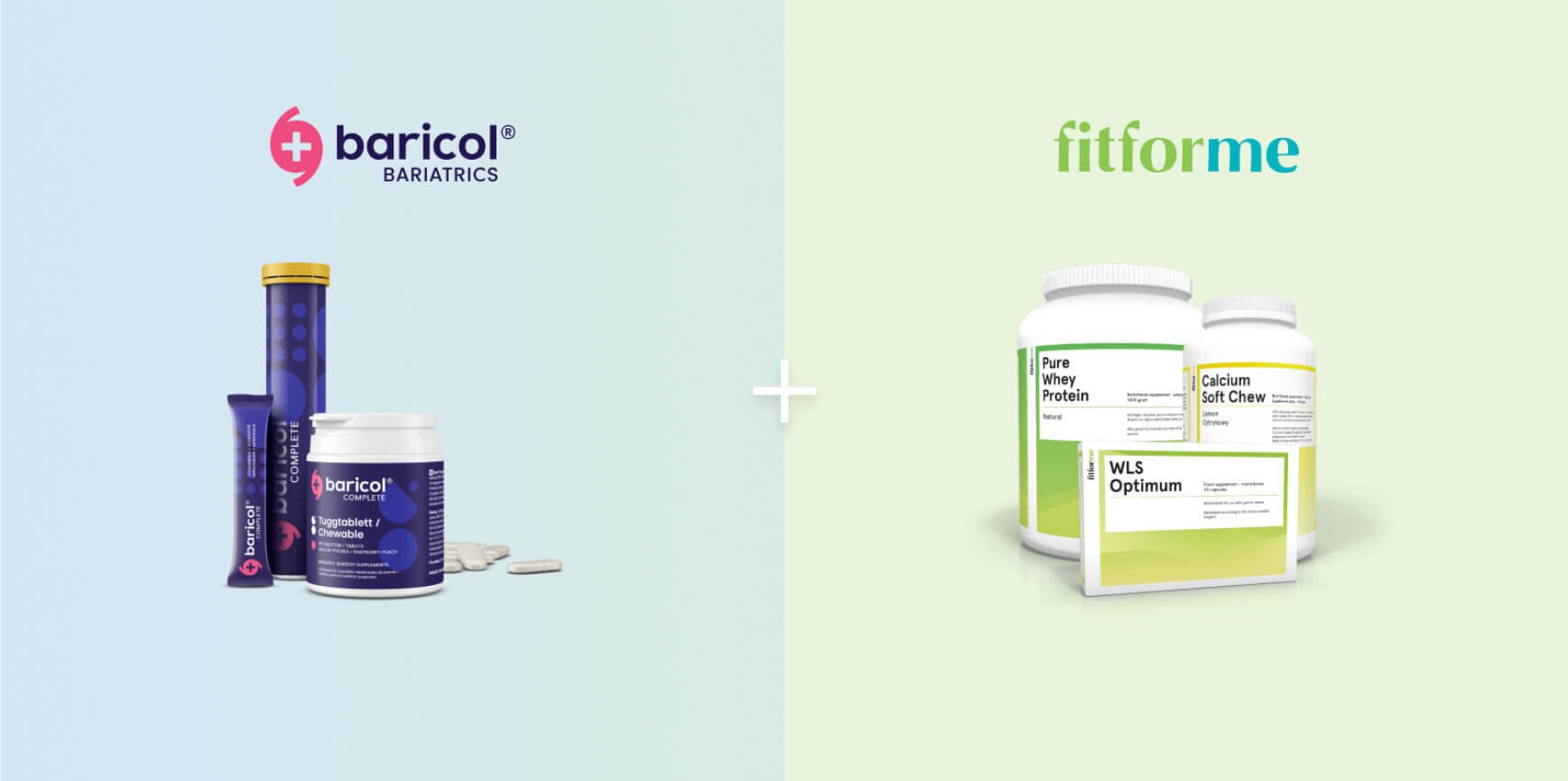Trusted by 130,000+ people for their vitamin and mineral needs

Baricol to Merge with FitForMe
We’re thrilled to announce that Baricol and FitForMe have teamed up to bring you an even better product tailored to your surgical needs. The best part? You only need to take one small pill a day to keep your vitamin levels in check. So much easier, right?
New customers
Welcome to the FitForMe family! We’re excited for you to explore our enhanced range of products designed to support your daily health needs. Discover all the exciting options we have to offer. Thanks for joining us on this journey to better healthcare!
-> Check out our Mutlivitamins
Existing Baricol customers
If you’re a current Baricol customer, your account and subscription are unchanged. Got questions or need updates? Just ask. You’ll still get your Baricol products, and we’re planning a smooth switch to FitForMe soon. Thanks for being with us!
If you want to make changes or have question about your Baricol products or your order, contact us. We’re available via phone: +44 (0)20-393 649 90 08h30 – 11h30 CET or via mail: [email protected]